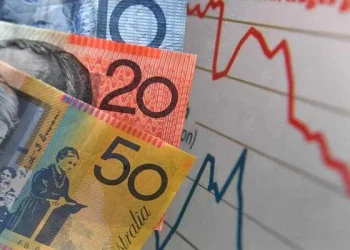In today’s interconnected global economy, currency exchange plays a crucial role in international trade, travel, and investment. Whether you’re planning a trip abroad, making a business transaction, or simply curious about the value of your money in another currency, understanding exchange rates and the conversion process is essential. This article aims to provide comprehensive guidance on converting $150 to euros, covering topics such as current exchange rates, calculation methods, factors influencing exchange rates, historical data analysis, currency converter tools, financial advice, transactional guidance, and common FAQs.
Current Exchange Rate:
As of the latest data available, the exchange rate between the US dollar (USD) and the euro (EUR) stands at 0.94. This rate fluctuates regularly due to various factors, including economic conditions, market sentiment, and geopolitical events. It’s important to note that exchange rates are dynamic and can change rapidly, so it’s advisable to check for the most up-to-date rates before initiating any currency exchange.
Calculation Method:
Converting $150 to euros involves a simple mathematical calculation based on the current exchange rate. The formula is as follows:
Amount in Euros = Amount in US Dollars × Exchange Rate
Using the current exchange rate, you can calculate the equivalent amount in euros by multiplying $150 by the exchange rate. For example, if the exchange rate is 0.94, the calculation would be:
Amount in Euros = $150 × 0.94 = €141.35
This means that $150 is equivalent to €141.35 euros at the current exchange rate.
Factors Affecting Exchange Rates:
Exchange rates are influenced by a multitude of factors, both macroeconomic and geopolitical in nature. Some key factors include:
Economic Indicators: Factors such as inflation rates, interest rates, and GDP growth can impact a country’s currency value. For instance, a higher interest rate in the US compared to Europe may attract foreign investors, increasing demand for the US dollar and driving up its value relative to the euro.
Market Speculation: Trader sentiment and speculation can heavily influence short-term fluctuations in exchange rates. News events, economic reports, and political developments can trigger rapid movements in currency markets as traders react to new information.
Geopolitical Events: Political instability, trade tensions, and geopolitical conflicts can create uncertainty in currency markets, leading to volatility and fluctuations in exchange rates. For example, Brexit negotiations and US-China trade tensions have had significant impacts on the value of the euro relative to the dollar in recent years.
Historical Data:
Analyzing historical exchange rate data can provide valuable insights into long-term trends and patterns. By examining past performance, investors and analysts can identify potential opportunities and risks in currency markets.
Currency Converter Tool:
For immediate currency conversions, you can use online currency converter tools offered by reputable financial institutions or currency exchange websites. These tools allow you to input the amount in one currency and instantly see its equivalent value in another currency based on the current exchange rate.
Financial Advice:
When exchanging currency, it’s important to consider current market trends and potential risks. Here are some tips for making informed currency exchange decisions:
Monitor Exchange Rates: Keep track of exchange rate movements and trends to identify favorable times for currency conversion. Utilize financial news sources and analysis to stay informed about market developments.
Diversify Currency Holdings: Consider diversifying your currency holdings to mitigate risk and take advantage of potential opportunities in different currency markets.
Plan Ahead: If possible, plan currency exchanges in advance to avoid making rushed decisions during periods of high volatility.
Consult Financial Advisors: For larger transactions or investment purposes, consider seeking advice from financial professionals who specialize in currency markets.
Transactional Guidance:
When conducting currency exchanges, you have several options for executing the transaction:
Online Transactions: Many banks and financial institutions offer online currency exchange services, allowing you to convert currencies conveniently from your computer or mobile device. Ensure that you use reputable and secure platforms for online transactions.
Local Exchange Bureaus: If you prefer to exchange currency in person, you can visit local exchange bureaus or currency exchange offices. Be mindful of exchange rates and fees charged by these establishments, as they may vary.
ATMs and Credit Cards: When traveling abroad, you can withdraw cash from ATMs or use credit cards for purchases in local currency. Keep in mind that ATM withdrawals and credit card transactions may incur foreign transaction fees and unfavorable exchange rates.
FAQ Section:
How often do exchange rates change?
Exchange rates can change multiple times throughout the day in response to market dynamics and news events. It’s advisable to check for updated rates frequently, especially when planning currency exchanges.
Are there fees associated with currency exchange?
Yes, currency exchange transactions may incur fees, including exchange rate spreads, service charges, and commissions. These fees vary depending on the method of exchange and the provider. It’s important to compare fees and rates across different providers to minimize costs.
Can I exchange currency at the airport?
While airports often have currency exchange kiosks, they typically charge higher fees and offer less favorable exchange rates compared to banks or exchange offices. If possible, it’s better to exchange currency before arriving at the airport or explore alternative options.
What is the best time to exchange currency?
The best time to exchange currency depends on individual circumstances and market conditions. Generally, it’s advisable to exchange currency when exchange rates are favorable and to avoid making rushed decisions during periods of high volatility.
In conclusion, converting $150 to euros involves understanding exchange rates, calculation methods, market dynamics, and available options for currency exchange. By staying informed and following best practices, you can make informed decisions and optimize your currency transactions for maximum value and convenience.
Related Topics:























